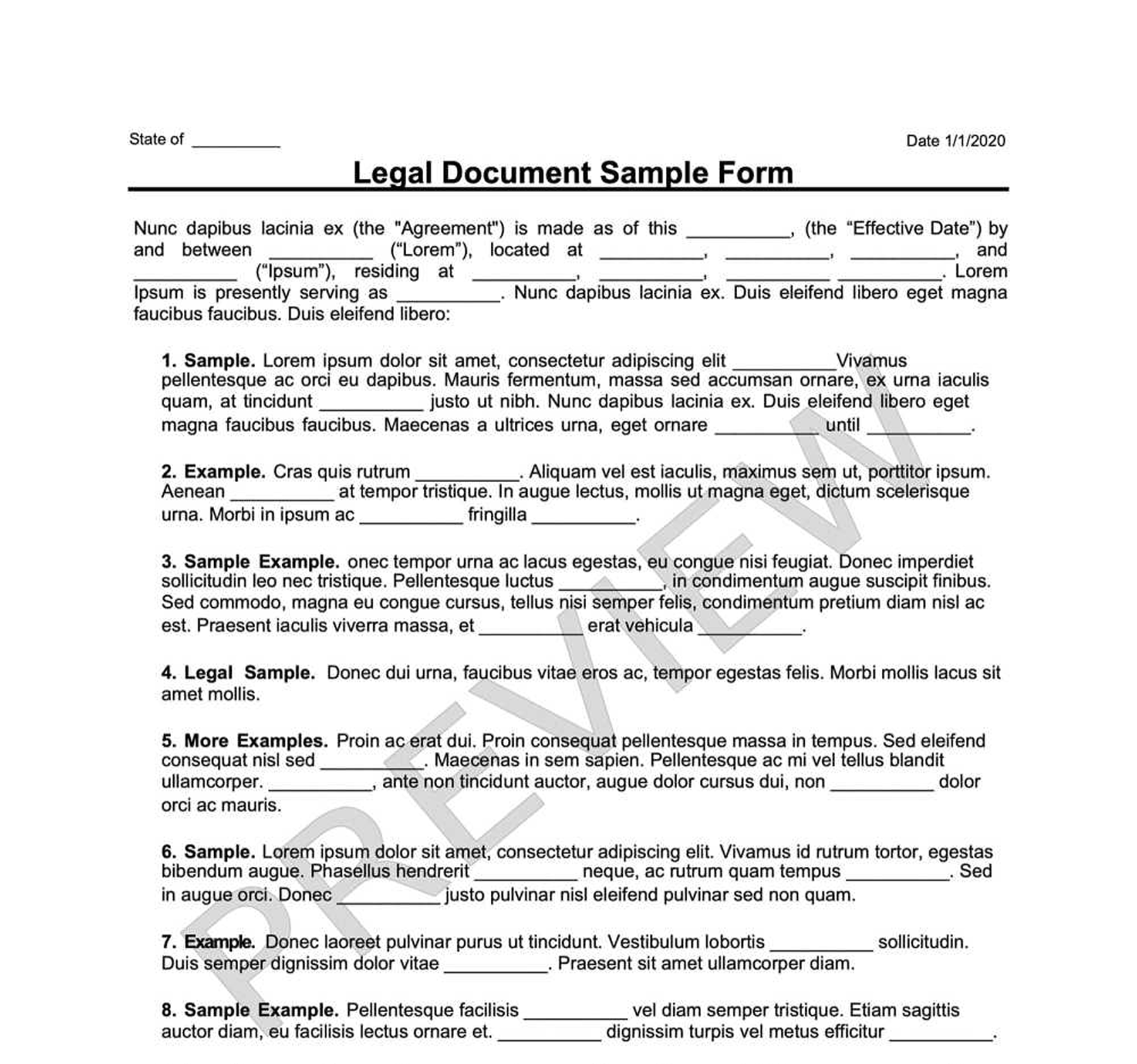Compensation Agreement
A Compensation Agreement details relevant changes in the salary or earnings of an employee.

How it Works
Build your selected document.
Answer a few simple questions with step-by-step instructions.
Print & download forms instantly. Sign & make it legal.
What Is a Compensation Agreement?
The Compensation Agreement is a reasonably standard document for companies big and small. It records all changes in earnings as negotiated between an employer and an employee.
An employee's earnings are to be adjusted occasionally, and that is recorded in an official legal document.
What Is a Compensation Agreement?
The Compensation Agreement's essential element is that it should record all changes regarding the employee's compensation. These changes can include things like overtime pay and non-monetary benefits.
A Compensation Agreement is especially vital for those who work on commissions, such as salespersons and trade workers. The Compensation Agreement between an employer and an employee reduces dissatisfaction and potential disputes.
Other Names for Compensation Agreement
Depending on your state, a Compensation Agreement may also be known as:
- Compensation Plan
- Compensation Contract
- Salary Agreement
- Employee Compensation Agreement
Who Needs a Compensation Agreement?
A Compensation Agreement is a contract protecting both the employer and employee. Every change in employment terms should be recorded in writing, which is especially the case for employee compensation. Furthermore, the Compensation Agreement is also crucial for the employer in being unequivocal about what's offered to employees, which lowers the chances of a disagreement.
Why Use Swyft Forms for Your Compensation Agreement
Customized for you, by you
Create your own documents by answering our easy-to-understand questionnaires to get exactly what you need out of your Compensation Agreement.
Specific to Your Jurisdiction
Laws vary by location. Each document on Swyft Forms is customized for your state.
How to Create a Compensation Agreement with Swyft Forms
The Compensation Agreement is a relatively common form used by many companies, especially those that hire workers on multiple levels.
Let Swyft Forms help with our extensive library of attorney-vetted legal forms. The process is fast and easy. All you have to do is fill out our easy-to-understand questionnaire. Once complete, simply download your form as a PDF or Word document from your secure online account.
What Information Will I Need to Create My Compensation Agreement?
To create your document, please provide:
- Company Information: The name and other information of the employer and the representative signing the document.
- Employee Information: The legal name, current address, and contact information of the employee.
- Effective Date: The date when the contract becomes effective.
- Purpose: State the reason for the agreement.
- Term: Specify the duration of the deal.
- Compensation Method: Specify whether the employee will receive a salary or hourly wages, including commission schedule.
- Additional Compensation: Specify other benefits like vacation time, different compensation rates, or paid personal or sick days.
- Previous Agreements: Specify the existence of prior compensation agreements.
Compensation Agreement Terms
- Compensation: A sum of money received for one's work.
- Probationary: A trial period before an official hire on the payroll.
- Resignation: The act of resigning.
- Negotiations: In the context of a Compensation Agreement, this is the back and forth concerning the terms.
- Confidentiality: A clause in the contract stating the employee is not to disclose any information about the work to a third party.
Compensation Agreement Signing Requirements
Before both the company representative and employee sign the document, go over all the terms as the document becomes legally enforceable once signed. Having a witness present can be recommended, and notarization is not required.
What to Do with Your Compensation Agreement
The signed Compensation Agreement should be distributed to both the employer and the employee. It does not have to be filed with the state, nor do you have to publish it anywhere. The company's HR department, if any, would keep a copy.
Other Names for Compensation Agreement
- Compensation Agreement Form
- Compensation Agreement Document
- Compensation Agreement Agreement
- Compensation Agreement Contract
- Compensation Agreement Template
- Compensation Agreement Checklist
Who Needs a Compensation Agreement?
Why Use Swyft Forms for Your Compensation Agreement
Customized for you, by you
Specific to Your Jurisdiction
Why choose Swyft Forms?
Create professional documents for thousands of purposes.
Make unlimited documents and revisions.
Our documents are vetted by lawyers and are applicable to all 50 states.
